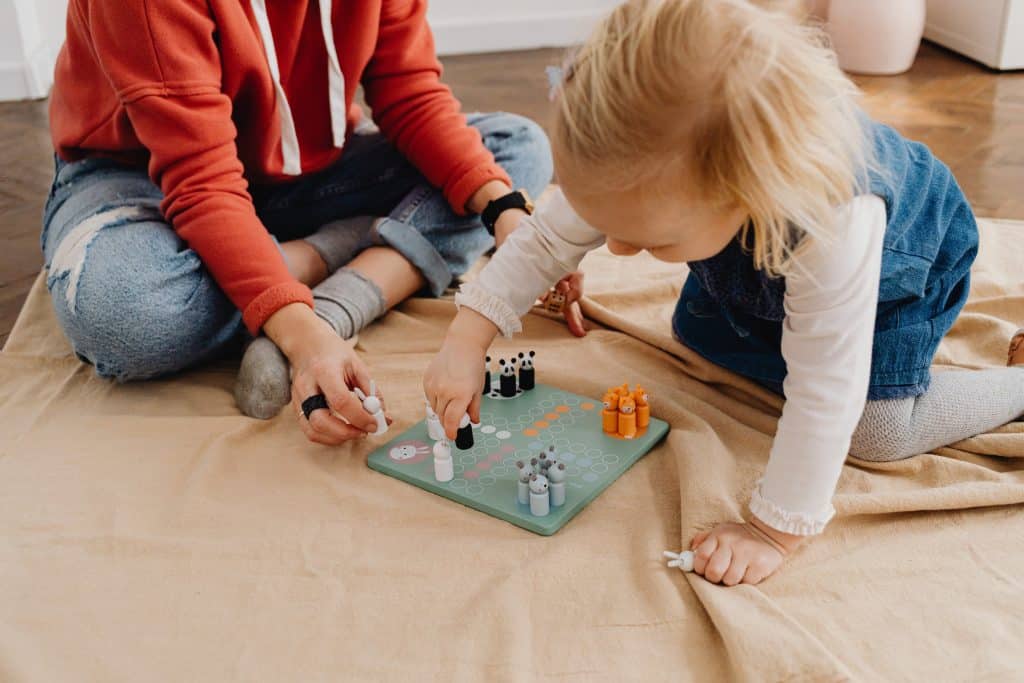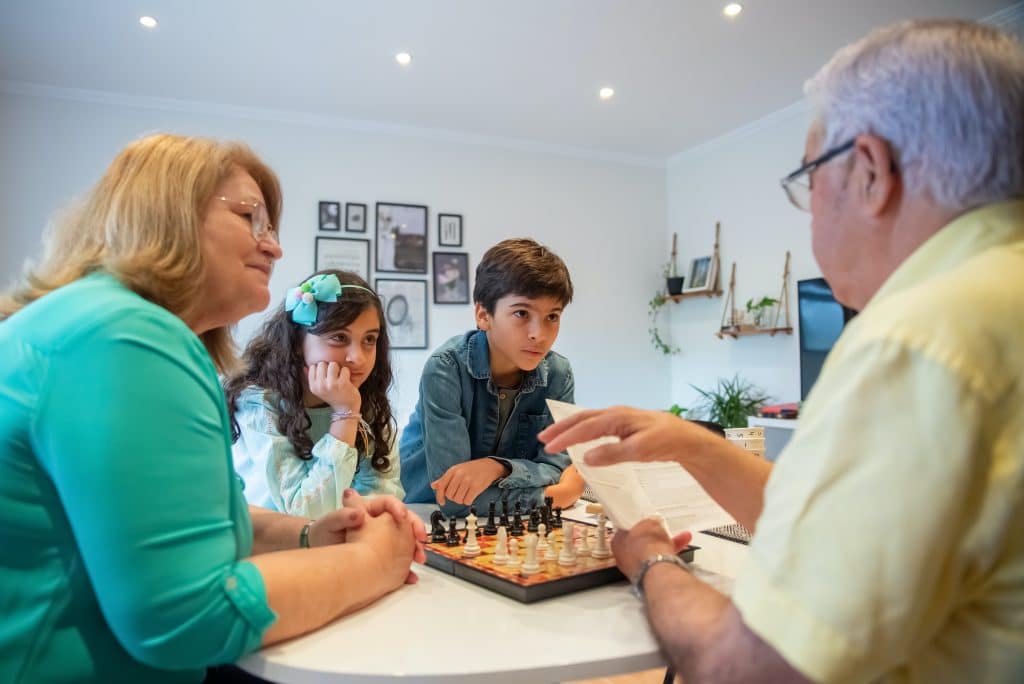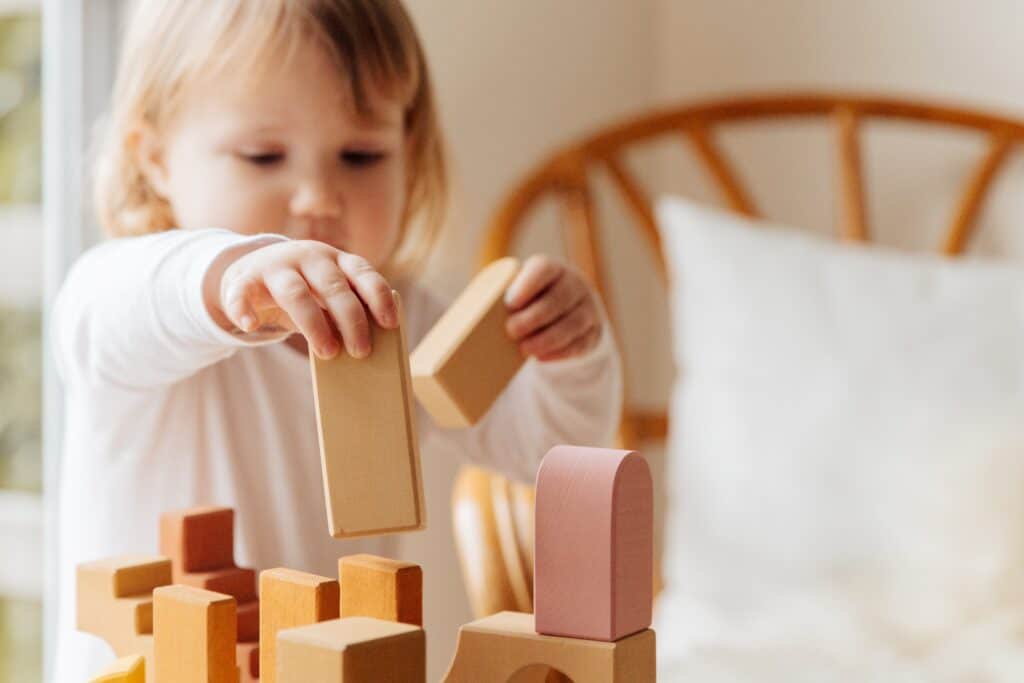When your child has a disability like autism spectrum disorder, it can be easy to forget that at the end of the day, he or she is still, well…a kid! Kids like to have fun. And as parents, we want to have fun with them, whether one on one or as a family. While many children with autism play differently than typical children, that doesn’t mean there aren’t plenty of ways to adapt activities, such as board, card, and tabletop games, to their individual needs.
Table of Contents
A Word About Setting Expectations…for Parents!
Navigating the waters of playtime can be tricky when your little ones face challenges like ADHD and severe anxiety. Believe me, I’ve been there. Figuring out what ‘successful play’ means for your amazing kiddos is more than just a game of chance. It’s about understanding their comfort zones, how long they can sit still, their focus levels, and what truly captures their interest.
Here’s the thing about board games for autism: it’s not always about clinging onto our childhood favorites, like Chutes and Ladders or Battleship. Our beloved pastimes might not hit the mark for our children, and that’s absolutely fine! The goal is to explore, adapt and find games that lighten their eyes. Let’s make ‘play’ a word that resonates positively with their unique abilities rather than fitting them into a conventional mold.
Think of this whole journey with board games for autism as a fantastic ongoing project, a chance to connect with your kids on a level that’s perhaps new to you. The main ingredient? Simply being open to giving it a go and not being afraid to reevaluate and try again, be it next week or the month after. With the multitude of gameplay styles out there, and as long as everyone’s up for a little variety and experimentation, there’s a high chance you’ll stumble upon the perfect fit for your family. So, keep exploring until you hit that ‘aha!’ game moment that brings joy to your entire tribe.
11 Ways To Have Fun Playing Board, Card and Tabletop Games With Kids on the Autism Spectrum
1. Pick a Game With a Theme That Interests Them
This may seem self-explanatory but think about it for a moment. Candyland is interesting to most kids because the theme is…candy. So, if your kiddo really loves Pete the Cat, but hates Shopkins, then the full range of Pete the Cat games out there (and there are a bunch!) will be a way better fit for them. They are much more likely to want to hang out and play if the subject matter can hook them in independently of the actual gameplay.
Read More: 39 Best Games for Autism
2. Consider Your Child’s Strengths (and Weaknesses)
Let’s get real; no two kids are the same – autism or not. Every child has a unique set of superpowers and kryptonite. In board games for autism, patience might not always be their strongest suit. And, if we could measure frustration tolerance on a negative scale, it could even paint a more accurate picture!
So, here’s the plan: we will focus on games that put collaboration front and center over the win-or-lose competition. And there’s absolutely no guilt in tweaking the gameplay. We’re shifting gears to make the game more about the journey, the joy of playing, rather than just the destination of winning or losing. After all, it’s the shared laughter and moments that truly matter.
3. Play in Teams (or as One Big Team!)
Playing games as a family doesn’t mean that competition is inevitable. Again, the idea here is to have fun! Playing as teams of two or three, with an adult on each team, can eliminate some of the pressure on individuals to win, and some of the negative emotions and frustration that may occur when someone (or multiples “someones”) loses.

4. Set Your Child (and Family) Up for Success by Explaining the Rules of the Game in Advance and Answering Any Questions They May Have
- Explain the rules: Whether you’re sticking to the board game’s original rules or adapting them for your child’s needs, it’s crucial to make everything clear from the start.
- Answer questions: Be prepared to clarify any doubts. Creating a safe space for your child to ask anything makes the game more enjoyable and less stressful.
- Address anxieties: Board games for autism can sometimes trigger anxieties. Be proactive in handling them to ensure your child feels safe and secure.
- Simplify if needed: If explaining the game takes more than a few minutes, it’s probably a good hint that simplifying the game could be beneficial.
- Embrace modifications: Don’t shy away from tweaking the rules and gameplay. Adapting games to suit your child’s comfort and enjoyment isn’t just an option – it’s encouraged!

5. Consider the Average Gameplay Time
Most games will state the average gameplay time in the instructions and on the outside of the box (and most websites will display that information in the description if you are purchasing online). If you know your kiddo is not about to sit still and hang out for 30 minutes (*raises hand*), then a short-but-sweet game, or one that can be modified to take less time, is probably a better way to go.
6. Offer More Than One Option
If you are able to offer multiple game options and can allow your child to pick which one they’d like to play, it’s more likely to set them (and you) up for success. A little advance buy-in on their end can go a long way!

7. Create an Environment That Reinforces the Activity As Play, Not Work
Kids with ASDs can end up spending a lot of their day engaging in work, whether at school or in ABA-based therapy. Even at home, they are often “working,” as are their parents, given that ABA doesn’t exist in a vacuum to be carried out only with therapists. Therefore, it’s important that play feels like play, not a chore, or a goal, or yet more work.
There are lots of ways to do this, big and small. Have a formal dining room that rarely gets used? Play there! Is there a specific treat like ice cream or popcorn (or both!) your child loves? Make that part of the fun. Put on some music, allow a later bedtime — anything that enhances the fun, and works for you as a parent, is fair game (pun intended).
Read More: Play Tips for Preschool-Age Children
8. Let Your Child Walk Away
Related to #7 above, if you really want to reinforce playing games as fun and not work, you’re going to have to be “ok” with your child getting halfway through the game and then walking away — especially at first. This can, undoubtedly, be hard. As parents, we want to make sure our kids learn to finish what they’ve started. And yes, perseverance is important. But in this case, what matters is that they tried. Next time, you’ll all try again, building on that success. Perseverance can look like more than one thing.
9. Don’t Be Afraid To Resort to Bribery
- Comfort with incentives: It’s okay to motivate your family to join in on the board games for autism. It’s all about creating a positive environment for everyone.
- Understanding preferences: Every child will have their favorite games. Empathy goes a long way in ensuring everyone has fun.
- Incentivize participation: Offering an extra scoop of ice cream or some other treat can work wonders in encouraging your older child to join the game chosen by the younger one.
- Compromise: Sometimes, maintaining harmony could be as simple as an additional 30 minutes of screen time. Balance is key!
- Parental Acceptance: Remember, using these strategies is entirely fine, as the goal is to keep everyone happy and engaged.
10. Pick a Regular Time and Day for Play
The majority of kids with ASDs thrive when they have specific routines and schedules to follow. Adding game night to their schedule (and I highly recommend using one that is visual) so they know in advance that it’s coming up can help get them in the right mindset for play.
11. Have Zero Expectations About How Long “Game Night” Will Last
You’ve spent time and money getting ready for your first game night. You’ve prepped the family, you’re prepared the popcorn, and you’ve promised extra time before bed. You are ready to get this party started. And you do!
And then…it’s over in 10 minutes. Sigh.
Well, I’m here to tell you, I’ve been there. And while it’s disappointing, if you go into game night with the expectation that it could last five minutes or 50, it will be a lot less so. Plus, 10 minutes of fun is way, way better than 30 minutes of insisting that everyone sit still and pay attention and do what they’re told. Way.
Goally | Fun Games that Build Motor Skills & Manage Screen Time
Looking for ways to improve your child’s finger dexterity skills while also keeping screen time manageable? Try Goally’s fun & motor planning apps.
Our Balloons & Graffiti Street Apps are all about building motor skills in a fun, interactive way. Kids learn to “pop the balloons” or draw dozens of digital art designs while simultaneously developing the essential skills needed to use AAC and other communication tools. Meanwhile, Game Garage is a parent-controlled space filled with entertaining (but parent-controlled) video games that kids can unlock with the points they earn from completing routines.
Just remember — the more game nights you have, the easier it will get, the longer they will last, and the more fun they will be. What matters most is that you are creating the time and space for play to happen, as a family, together, making memories that really will last a lifetime.
FAQs About Board Games for Autism
What are some good board games for children with autism? Some excellent board games for children with autism include "Outfoxed," "Hoot Owl Hoot," and "Peaceable Kingdom Dinosaur Escape." They focus on cooperation and are adaptable to individual needs.
How can board games benefit children with autism? Board games can boost social skills, promote strategic thinking, and improve emotional regulation in children with autism. They also provide a fun, interactive way to learn and grow.
Can board games for autism be adapted to fit a child's unique needs? Absolutely! Adapting rules and gameplay to meet a child's unique needs and comfort levels is not just an option but is encouraged.
How do I choose the suitable board game for my child with autism? Consider your child's interests, patience level, and cooperation ability. Opt for games that promote collaboration and can be easily explained and modified.
What should I do if my child with autism finds a board game difficult or frustrating? It's important to reassure your child and make modifications to simplify the game. Always remember, the aim is to enjoy playing.
This post was originally published on 08/16/2022. It was updated on 06/10/2023.

Goally
We help parents teach their kids life skills, like doing bedtime and morning independently. Backed by science, we incorporate evidence-based practices and expert-informed designs in all of our apps and content.







